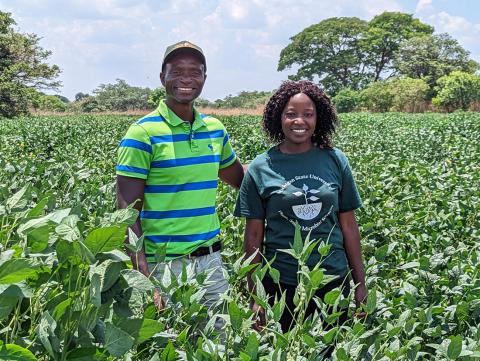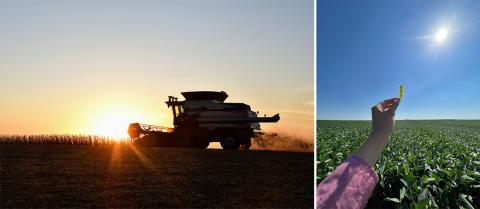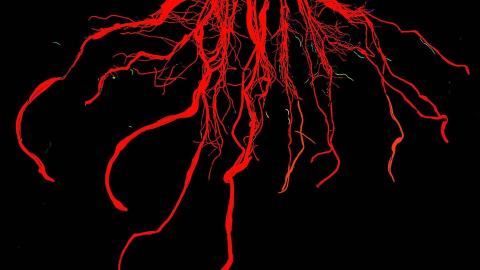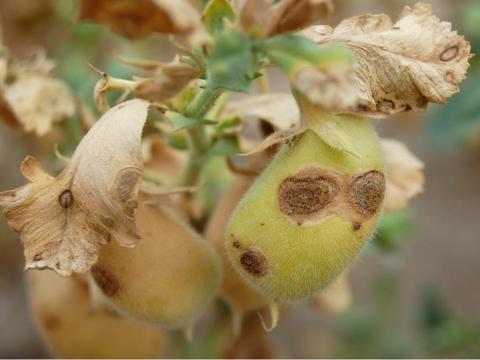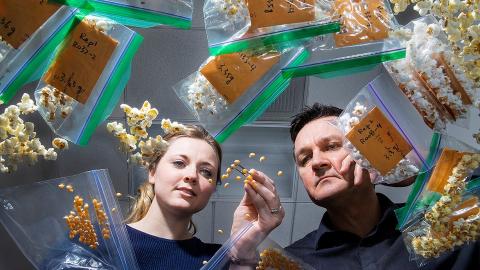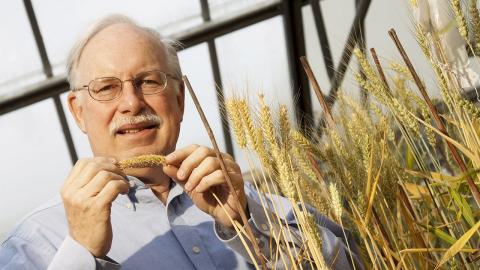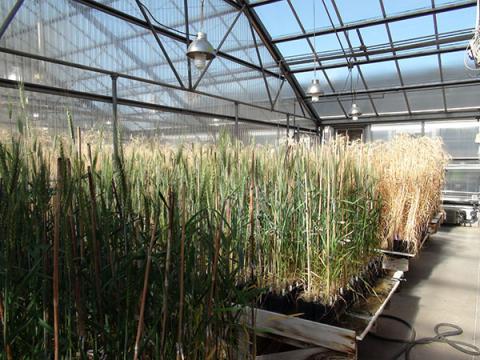UNL Bean Breeder Collaborates on Bean Project in Zambia
June 15, 2023
UNL's Carlos Urrea has been assisting with ongoing research efforts to develop dry bean resistance to the bruchid beetle — a storage pest of dry beans — for growers in southern Africa.
Nebraska Growers Help Estimate Field Variability in Soybean Protein and Oil Content
June 14, 2023
First-year results of a cooperative, multi-state research project aimed at helping growers achieve soybean yields with higher protein and oil content.
Nebraska Researchers Identify Genes that Help Corn Adapt to New Environments
April 13, 2023
The research team hopes to speed development of new corn varieties tolerant to extreme weather conditions and management practices as Nebraska farmers experience increasing water restrictions and fertilizer prices.
New Chickpea Disease Study Will Begin in 2021
January 29, 2021
With chickpea demand on the rise, UNL researchers are digging into a fungal disease issue that has long-prevented the crop's commercial growth in Nebraska.
Genes to Proteins: Enriching the Nutritional Value of Popcorn, Sorghum
February 21, 2019
After years of research a University of Nebraska-Lincoln team led by David Holding has roughly doubled the content of lysine, an essential amino acid, in both popcorn and sorghum. For sorghum it could mean a more complete source of nutrition for many in the developing world.
New Multi-State Research on Developing Higher Yielding Hybrid Wheats
December 19, 2016
A University of Nebraska-Lincoln research team has earned a three-year grant from the U.S. Department of Agriculture to develop higher yielding lines of hybrid wheat that can meet rising demand for the staple food crop.
Plant Breeding for Non-Plant Breeders Online Course
May 16, 2016
Are you interested in plant breeding and genetics but can never find the time to pursue it? Do your colleagues talk about plant breeding and expect you to know what they mean? Do you easily get lost in work conversations centered on new findings in plant genetics?
If so, Plant Breeding for Non-Plant Breeders is the online, non-credit class for you. Delivered online over 10 weeks from June 6 through Aug. 12, this course does not require on-campus attendance.
